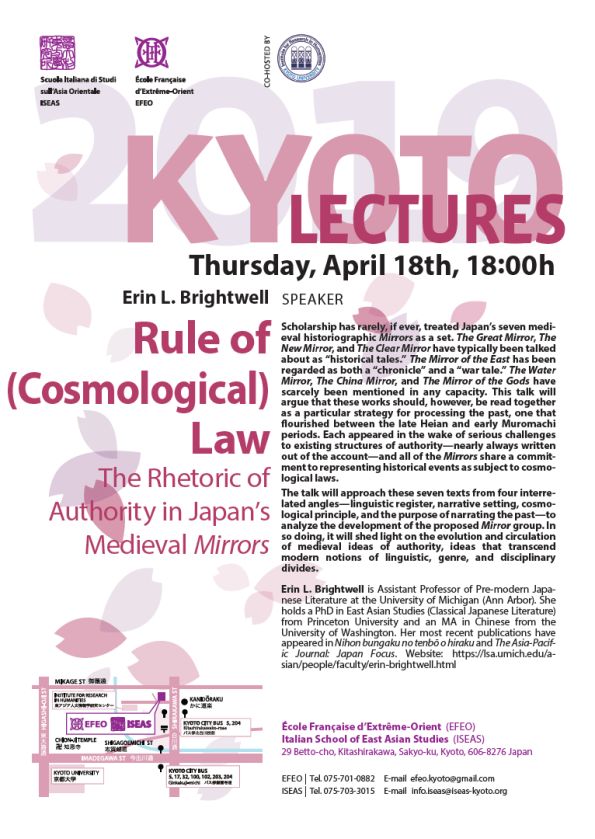Scholarship has rarely, if ever, treated Japan’s seven medi-eval historiographic Mirrors as a set. The Great Mirror, The New Mirror, and The Clear Mirror have typically been talked about as “historical tales.” The Mirror of the East has been regarded as both a “chronicle” and a “war tale.” The Water Mirror, The China Mirror, and The Mirror of the Gods have scarcely been mentioned in any capacity. This talk will argue that these works should, however, be read together as a particular strategy for processing the past, one that fourished between the late Heian and early Muromachi periods. Each appeared in the wake of serious challenges to existing structures of authority?nearly always written out of the account?and all of the Mirrors share a commit-ment to representing historical events as subject to cosmo-logical laws.
Please refer to the attached document.
Thursday, April 18th, 18:00h
Ecole Francaise d’Extreme-Orient (EFEO)
Italian School of East Asian Studies (ISEAS)

